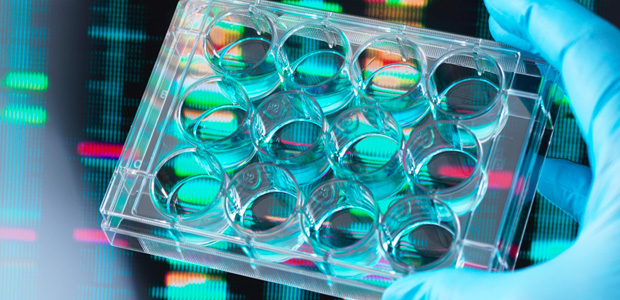 Laboratory testing represents a significant portion of healthcare diagnostics and plays a crucial role in disease detection, management, and prevention. For healthcare providers and billing specialists, understanding the Common Procedural Terminology (CPT) codes used in laboratory billing is essential for proper reimbursement and compliance.
Laboratory testing represents a significant portion of healthcare diagnostics and plays a crucial role in disease detection, management, and prevention. For healthcare providers and billing specialists, understanding the Common Procedural Terminology (CPT) codes used in laboratory billing is essential for proper reimbursement and compliance.
Below, an overview of the most commonly used CPT codes across various laboratory specialties, helping healthcare professionals navigate the complex landscape of laboratory billing.
Understanding Laboratory CPT Codes
CPT codes for laboratory services are primarily found in the Pathology and Laboratory section (80000-89999) of the CPT codebook. These codes represent procedures ranging from basic blood tests to complex genetic analyses.
Laboratory CPT codes are generally categorized by:
- Testing methodology
- Specimen type
- Purpose of analysis
- Complexity level
Most Common Laboratory CPT Codes by Specialty
Chemistry
Chemistry tests are among the most frequently ordered laboratory tests and include basic metabolic panels, lipid testing, and specific analyte measurements.
| CPT Code | Description |
|---|---|
| 80053 | Comprehensive Metabolic Panel |
| 80061 | Lipid Panel |
| 80048 | Basic Metabolic Panel |
| 82607 | Vitamin B-12 |
| 82652 | Vitamin D, 1,25-dihydroxy |
| 82306 | Vitamin D, 25-hydroxy |
| 82570 | Creatinine, other source (urine) |
| 82947 | Glucose, quantitative |
| 83036 | Hemoglobin A1C |
| 84153 | Prostate-specific antigen (PSA), total |
| 84439 | Thyroxine, free (FT4) |
| 84443 | Thyroid Stimulating Hormone (TSH) |
Hematology
Hematology testing examines blood components and is crucial for diagnosing various blood disorders and monitoring overall health.
| CPT Code | Description |
|---|---|
| 85025 | Complete Blood Count (CBC) with automated differential |
| 85027 | Complete Blood Count (CBC) without differential |
| 85610 | Prothrombin time (PT) |
| 85730 | Partial Thromboplastin Time (PTT) |
| 85378 | D-dimer test |
| 85046 | Blood smear morphology |
| 85014 | Hematocrit |
| 85018 | Hemoglobin |
Microbiology and Infectious Disease
These tests identify pathogens and assess antimicrobial sensitivity to guide treatment for infections.
| CPT Code | Description |
|---|---|
| 87086 | Urine culture, bacterial |
| 87070 | Culture, bacterial, any source |
| 87088 | Urine culture and colony count |
| 87110 | Culture, chlamydia |
| 87206 | Smear, fluorescent and/or acid-fast stain |
| 87430 | Streptococcus, group A |
| 87491 | Chlamydia trachomatis, amplified probe |
| 87591 | Neisseria gonorrhoeae, amplified probe |
| 87798 | Infectious agent detection by nucleic acid, not otherwise specified |
| 87806 | HIV-1 antigen(s) with HIV-1 and HIV-2 antibodies |
| 87880 | Streptococcus, group A, direct optical observation |
Immunology
Immunology tests assess immune system function and are used to diagnose autoimmune conditions, allergies, and immunodeficiencies.
| CPT Code | Description |
|---|---|
| 86003 | Allergen specific IgE, quantitative or semiquantitative |
| 86039 | Antinuclear antibodies (ANA) |
| 86140 | C-reactive protein |
| 86592 | Syphilis test, non-treponemal antibody |
| 86677 | Helicobacter pylori antibody |
| 86703 | HIV-1 and HIV-2, single assay |
| 86756 | Respiratory syncytial virus antibody |
| 86769 | SARS-CoV-2 (COVID-19) antibody |
Molecular Diagnostics and Genetics
These advanced tests examine genetic material to diagnose genetic disorders, identify cancer mutations, and detect infectious agents.
| CPT Code | Description |
|---|---|
| 81228 | Cytogenomic constitutional microarray analysis |
| 81240 | F2 (prothrombin, coagulation factor II) gene analysis |
| 81420 | Fetal chromosomal aneuploidy genomic sequence analysis |
| 81479 | Unlisted molecular pathology procedure |
| 87635 | SARS-CoV-2 (COVID-19), amplified probe technique |
| 87798 | Infectious agent detection by nucleic acid, not otherwise specified |
| 87901 | HIV-1 genotype analysis, reverse transcriptase and protease regions |
Urinalysis
Urinalysis tests evaluate urine specimens to diagnose urinary tract infections, kidney disease, and other metabolic conditions.
| CPT Code | Description |
|---|---|
| 81001 | Urinalysis, automated with microscopy |
| 81002 | Urinalysis, non-automated without microscopy |
| 81003 | Urinalysis, automated without microscopy |
| 81025 | Urine pregnancy test, visual color comparison |
| 82043 | Albumin, urine, microalbumin, quantitative |
| 82570 | Creatinine, other source (urine) |
Toxicology
Toxicology tests detect the presence of drugs, medications, and other substances in specimens.
| CPT Code | Description |
|---|---|
| 80305 | Drug test(s), presumptive, qualitative |
| 80306 | Drug test(s), presumptive, read by instrument |
| 80307 | Drug test(s), presumptive, complex chromatography |
| 80320-80377 | Drug assays (specific drugs) |
| 82075 | Alcohol (ethanol), breath |
| 83992 | Phencyclidine (PCP) |
Pathology
Pathology services include tissue examination to diagnose diseases and determine treatment options.
| CPT Code | Description |
|---|---|
| 88305 | Surgical pathology, Level IV examination |
| 88307 | Surgical pathology, Level V examination |
| 88312 | Special stain, Group I |
| 88342 | Immunohistochemistry, each antibody |
| 88360 | Morphometric analysis, tumor immunohistochemistry |
| 88312 | Special stain, Group I |
Modifier Codes for Laboratory Services
Modifiers help specify when laboratory services differ from standard procedures:
| Modifier | Description |
|---|---|
| 90 | Reference (outside) laboratory |
| 91 | Repeat clinical diagnostic laboratory test |
| 92 | Alternative laboratory platform testing |
| QW | CLIA waived test |
| 59 | Distinct procedural service |
Best Practices for Laboratory Billing
- Proper Documentation: Ensure all laboratory tests have appropriate documentation showing medical necessity.
- Test Bundling Awareness: Be aware of which tests are bundled together under a single panel code versus those that can be billed separately.
- Frequency Limitations: Monitor frequency limitations for certain tests, as Medicare and other payers may have specific limitations.
- Advance Beneficiary Notice (ABN): Utilize ABNs when applicable for tests that may not be covered due to frequency or medical necessity issues.
- Modifier Usage: Apply appropriate modifiers when tests are repeated on the same day or when a reference laboratory is used.
- CLIA Certification: Ensure your laboratory has appropriate CLIA certification for all tests being performed.
- Diagnosis Code Matching: Link appropriate ICD-10 codes to each laboratory test to demonstrate medical necessity.
Common Laboratory Billing Challenges
Medical Necessity Requirements
Payers require that laboratory tests be medically necessary for the diagnosis or treatment of a specific condition. Documentation must support the order for the test.
Frequency Limitations
Many laboratory tests have frequency limitations. For example, Medicare typically covers HbA1C testing only every three months for controlled diabetics.
Duplicate Billing
Care must be taken to avoid billing for the same test multiple times on the same date of service unless medically necessary and properly documented.
Panel vs. Individual Test Billing
When components of a panel are performed, the panel code should be used rather than billing for individual tests separately.
Summary: Commonly Used CPT Codes in Laboratory Billing
Understanding laboratory CPT codes is essential for accurate billing and optimal reimbursement. Staying current with code updates, payer policies, and documentation requirements will help ensure compliance and reduce the risk of claim denials.
Laboratory billing specialists should regularly review CPT code updates, payer-specific guidelines, and clinical documentation to optimize the billing process and maintain compliance with regulatory requirements.
Disclaimer: CPT codes and billing guidelines change frequently. This article is for informational purposes only and should not be considered as billing advice. Always verify current codes and payer requirements before submitting claims.

